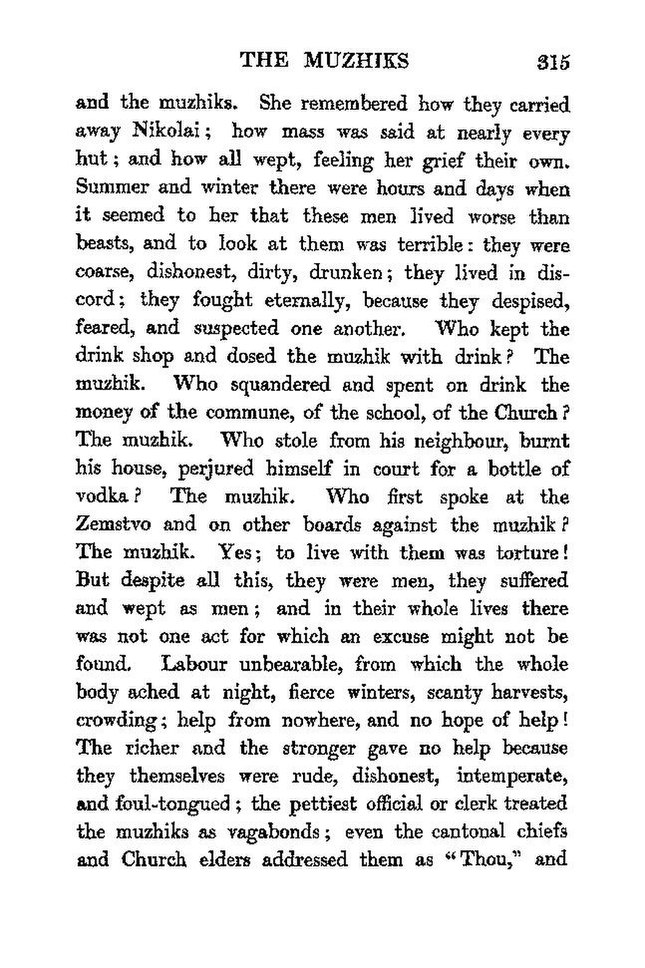and the muzhiks. She remembered how they carried away Nikolai; how mass was said at nearly every hut; and how all wept, feeling her grief their own. Summer and winter there were hours and days when it seemed to her that these men lived worse than beasts, and to look at them was terrible: they were coarse, dishonest, dirty, drunken ; they lived in discord; they fought eternally, because they despised, feared, and suspected one another. Who kept the drink shop and dosed the muzhik with drink? The muzhik. Who squandered and spent on drink the money of the commune, of the school, of the Church? The muzhik. Who stole from his neighbour, burnt his house, perjured himself in court for a bottle of vodka? The muzhik. Who first spoke at the Zemstvo and on other boards against the muzhik? The muzhik. Yes; to live with them was torture! But despite all this, they were men, they suffered and wept as men; and in their whole lives there was not one act for which an excuse might not be found. Labour unbearable, from which the whole body ached at night, fierce winters, scanty harvests, crowding; help from nowhere, and no hope of help! The richer and the stronger gave no help because they themselves were rude, dishonest, intemperate, and foul-tongued; the pettiest official or clerk treated the muzhiks as vagabonds ; even the cantonal chiefs and Church elders addressed them as “Thou,” and
